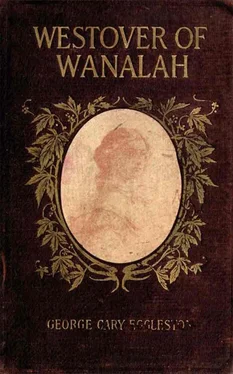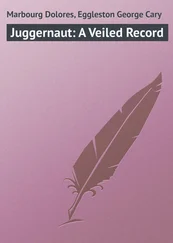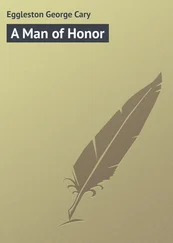George Cary Eggleston - Westover of Wanalah
Здесь есть возможность читать онлайн «George Cary Eggleston - Westover of Wanalah» — ознакомительный отрывок электронной книги совершенно бесплатно, а после прочтения отрывка купить полную версию. В некоторых случаях можно слушать аудио, скачать через торрент в формате fb2 и присутствует краткое содержание. Жанр: unrecognised, на английском языке. Описание произведения, (предисловие) а так же отзывы посетителей доступны на портале библиотеки ЛибКат.
- Название:Westover of Wanalah
- Автор:
- Жанр:
- Год:неизвестен
- ISBN:нет данных
- Рейтинг книги:3 / 5. Голосов: 1
-
Избранное:Добавить в избранное
- Отзывы:
-
Ваша оценка:
- 60
- 1
- 2
- 3
- 4
- 5
Westover of Wanalah: краткое содержание, описание и аннотация
Предлагаем к чтению аннотацию, описание, краткое содержание или предисловие (зависит от того, что написал сам автор книги «Westover of Wanalah»). Если вы не нашли необходимую информацию о книге — напишите в комментариях, мы постараемся отыскать её.
Westover of Wanalah — читать онлайн ознакомительный отрывок
Ниже представлен текст книги, разбитый по страницам. Система сохранения места последней прочитанной страницы, позволяет с удобством читать онлайн бесплатно книгу «Westover of Wanalah», без необходимости каждый раз заново искать на чём Вы остановились. Поставьте закладку, и сможете в любой момент перейти на страницу, на которой закончили чтение.
Интервал:
Закладка:
As he stood there under the lamp with his back turned away from the sidewalk Sam Anderson, an acquaintance of his own, passed, and recognizing him called out:
"Hello, Boyd! Reading a love letter by the light of a street lamp in a soaking rain? You'd better go indoors somewhere unless you want to imagine tear drops punctuating the tender missive."
Boyd turned and made some careless reply. The two separated—Boyd going on up Grace Street and turning north to Broad, while Anderson hurried down town.
The incident was utterly trifling in itself, but it was destined to exercise a baleful influence upon Boyd Westover's life.
It was nearly an hour after midnight when the young man presented himself again at the hotel office and asked for his key. The night clerk observed that he was soaked and dripping, for the rain was falling in torrents now, and suggested the need of a little fire in Boyd's room. The fire was ordered, as the night had grown chill in spite of the season, and by the time he had got himself into dry clothes, the blaze of the soft coal had made the room so cheerful that the young man decided to write letters before going to bed. One of them was addressed to Colonel Conway, and in it Boyd announced his success in arranging the loan, setting forth the terms secured and going minutely into detail. In the other, which was addressed to Colonel Conway's daughter, he told again of his success, giving no details at all, but setting forth his rosy anticipations of the coming time—now not far away—when she should be "my lady of Wanalah."
The letter to Colonel Conway was a long one of necessity; that to Margaret was much longer without any necessity at all. But even the longest letter must come to an end sometime, and at last, about four o'clock in the morning, Boyd Westover crept into bed, a man altogether happy in the present and confidently hopeful of the future. And why not? Fortune was bringing him its richest gifts. Love was already his and the future held out to him an assured promise of happiness and peace in the plantation life he loved. Now that he had succeeded in arranging his financial affairs to his liking, he had no vexing problems to wrestle with, no cause of anxiety of any kind. With Margaret for his wife, with an ample sufficiency of this world's goods, he had only to conduct his plantation affairs, to entertain his friends, and to keep company with his books.
It was of all this he dreamed when he sank to sleep.
When he awoke a constable stood by his bedside, with two of his assistants a few feet farther away.
"Sorry, sir," said the constable. "I don't like to wake a gentleman, sir, and still less in a case like this. If it was only a common criminal, sir, I shouldn't mind, but with a young gentleman, my duty ain't no ways a pleasant job."
"What do you mean, you ruffian?" angrily asked Westover springing out of bed. "Why do you presume to—"
"'Taint presumin' I reckon," answered the constable, "when I've got this fer my authority. Read it, sir, and see."
Boyd hastily glanced at the paper. It was a warrant for his arrest on a charge of burglary.
He laughed a little, as he proceeded to dress, saying:
"Of course this is a ludicrous mistake, but you are not to blame for it. Those who are will have to answer for their blundering. I'm ready. Take me to the magistrate."
"He don't git up this soon in the mornin', sir. He was woke up to 'tend to this thing, an' he wa'n't in no pleasant frame o' mind 'bout it nuther. I reckon he'll lay abed late this mornin' to make up his lost sleep, like. I don't reckon he'll show hisself in court till 'long 'bout noon."
"Where will you take me, then?"
"I reckon it'll have to be the lock-up, sir."
"The lock-up? You mean a jail?"
"Well jail's the straightaway name fer it, but we mostly calls it lock-up. Seems softer like."
"Now my man, listen to me. You have no right to put me in jail. Your warrant merely directs you to arrest me and bring me to court. It says nothing about locking me up in jail. I tell you there's some absurd mistake about this thing, and when I'm brought before the magistrate it will all be cleared up. You can detain me until then without putting a jail indignity upon me. Stay here at the hotel with me. Go with me to breakfast, leaving your men on guard outside. When the time comes take me before the magistrate. In the meanwhile I'll send for my lawyer and find out what's to be done."
The constable ran his eye over the muscular young man, and shook his head.
"Can't be did," he replied. "You mout make up your mind to break away, and I don't brag o' stren'th enough to handle a limber twig like you."
"Well then, you can bring your men with you into the dining room and keep them with you."
"See here, Mr. Westover," interrupted the bailiff, "this here ain't noways a pleasant job fer me, an' ef you'll give me your word of honor as a gentleman that you won't git me into no trouble by givin' me the slip or tryin' to break bounds, I'll take the chances on you. I won't go to breakfast with you, 'cause it 'ud make talk ef folks saw a gentleman like you a entertainin' a feller like me that a ways. I'll jest set down furder down the table like, an' leave my men outside. Is it a go?"
"Yes, and thank you for your consideration. I give you my word of honor as a gentleman that I will make no attempt to escape, either during breakfast or at any other time, and that when you wish me to go to the court with you I'll go without a word. Is that sufficient?"
"Yes, sir, that's enough. A gentleman may do things that gits him into trouble with the courts, but I ain't never knowed a gentleman to break his word of honor."
The constable was by no means an over-confiding person, but the dictum he announced was based upon the facts of a social system with which he had been familiar all his life. It would have been accepted without question by any other man of his class in the commonwealth. Thanks to it, Boyd Westover was left free to go and come at will within the precincts of the hotel. He hurriedly summoned his friend and attorney, Jack Towns, and remained in conference with him throughout the morning.
Neither could frame any plausible conjecture as to the meaning of the arrest. There was nothing in any of the morning newspapers to give even a hint toward the solution of the mystery. It was not the practice of the Richmond newspapers at that time to print news, except such as related to politics. If by chance they recorded any local happening, it was by mere mention, in small type in some out of the way corner of columns which were mainly devoted to ponderous editorial essays on affairs of state, and to a reprint of the proceedings of Congress on the day before.
It was not until the two friends, lawyer and client, were escorted by the bailiff to a magistrate's court that they learned aught of the charge against the accused man. What they learned there was very little, but it furnished a basis for further inquiry on their part. As this is not a detective story, all that they learned in court and by subsequent inquiry may best be related directly, in another chapter.
CHAPTER VI – OUT OF A CLEAR SKY
On a corner of Grace Street in that part of it which Westover had twice traversed on the evening before, stood a very spacious dwelling house, used at that time as a "Select Educational Establishment for Young Ladies." That was what the proprietor, Monsieur Le Voiser, called it in his circulars and the like; everybody else called it "Le Voiser's School."
There young women, mostly the daughters of the well to do planters, were "finished" after the most approved fashion. The training they had received at the hands of their governesses and tutors was supplemented by certain refinements of education which were deemed necessary to the perfection of their minds and manners. They had already learned to strum on the piano; here they were taught how to do so with ease and grace and with the air of accomplished pianistes. Instead of Stephen C. Foster's melodious but idiotically sentimental songs, which they loved, they were trained to screech "Hear me Norma," and other "operatic pieces," which they loathed. More important than all, they were taught French until they could dream in that language—bad dreams probably, if they were in harmony with the French in which they were cast.
Читать дальшеИнтервал:
Закладка:
Похожие книги на «Westover of Wanalah»
Представляем Вашему вниманию похожие книги на «Westover of Wanalah» списком для выбора. Мы отобрали схожую по названию и смыслу литературу в надежде предоставить читателям больше вариантов отыскать новые, интересные, ещё непрочитанные произведения.
Обсуждение, отзывы о книге «Westover of Wanalah» и просто собственные мнения читателей. Оставьте ваши комментарии, напишите, что Вы думаете о произведении, его смысле или главных героях. Укажите что конкретно понравилось, а что нет, и почему Вы так считаете.












